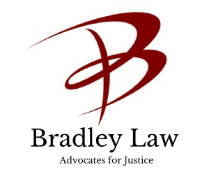Consumer Fraud and protection
At the federal level, the government has enacted laws that protect consumers from fraudulent and deceptive business practices. The laws on the books, both state and federal, usually contain potential remedies that are available for victims of consumer fraud. The most common forms of compensation include financial compensation for losses or other damages, punitive damages, and attorney’s fees.
New Mexico Consumer Fraud and Unfair and Deceptive Practices
Most consumer fraud cases in the state of New Mexico are covered under the New Mexico Unfair Practices Act (“UPA”). This law imposes damages on businesses who do anything that is considered deceptive with the intent that the consumer relies on it when making their decision. In other words, if a business tells you that the widget you want to buy is brand new—never off the sales floor—but later you find out that the widget you purchased was used, and actually was returned because it was broken, that is a deceptive sales technique that would be covered under the UPA. If the business represents the widget as something that it is not, that business has engaged in unfair and deceptive business practices, i.e. fraud.
The UPA is extremely consumer friendly and provides a broad interpretation of what constitutes deceptive conduct. The UPA covers intentionally deceptive behavior, but also careless misrepresentations and omissions that make it likely that a consumer will be confused. That is, even if a business represents something and believes it to be true, but the said representation turns out to be false, the consumer may have a claim under the UPA. It is best to consult with an attorney that is familiar with consumer fraud to see if you have a case, because each set of facts and circumstances is different.
Different types of deception include affirmative acts, knowing omissions, or just a specific violation. An affirmative act is when a business deceives, misrepresents, makes false promises, or conducts itself in other fraudulent behavior. An omission is similar, but instead of outright deception, the business attempts to conceal, suppress, or omit material facts to induce the consumer to make a purchase. There also may be times when a violation does not fit within an affirmative act or omission. Most likely, in that scenario, the business is in a direct violation of a provision of the UPA.
Unlike criminal law, you do not need to prove intent. The UPA allows for compensation for your damages, even if the intent of the violation of the UPA is unclear. The UPA is extremely consumer friendly, and all you have to show is that the law has been violated and you were damaged from it. Common damages are monetary, loss of use, loss of time, and emotional distress.
Bradley Law – Advocates for Justice
If you think you may be a victim of consumer fraud, Bradley Law can help ensure your rights are protected. We represent individuals in consumer fraud and unfair and deceptive practices cases. We understand the New Mexico Unfair Practices Act and how it applies to these often-complex cases. If you have been a victim of a bait and switch scheme, hidden charges, fraudulent misrepresentation or omissions, or false advertising, give Bradley Law a call today. 505-585-4-LAW (505-585-4529)

